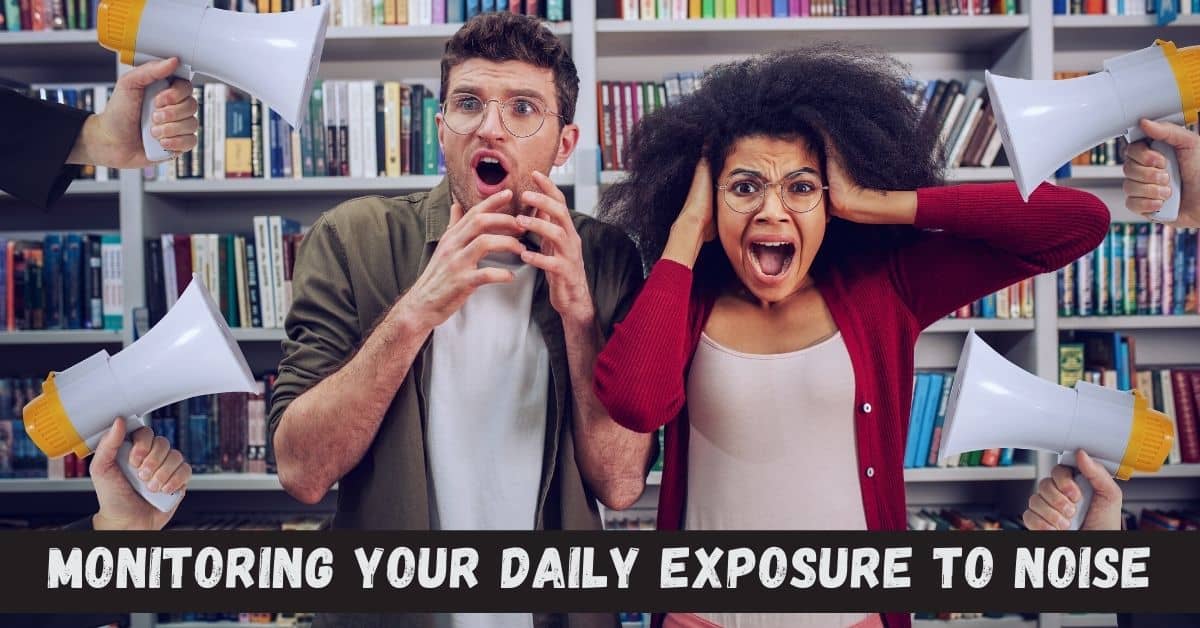
Loud sounds are all around us. You’re exposed to noise at home, at work, on your daily commute, and as part of your leisure activities. Most of the sounds in our environment are safe, but some can pose a risk to our hearing health. When you’re exposed to loud noise every day, it can lead to permanent hearing loss. Monitoring your daily exposure to noise will help you keep your hearing safe.
What is Noise Induced Hearing Loss?
The loud sounds in your environment can cause damage to your hearing. This is called noise induced hearing loss. You can experience noise induced hearing loss when you spend too much time in extremely noisy environments.
Noises that are over 85 decibels (dB) can cause hearing loss after a few hours of exposure, while sounds that are over 140 dB can cause hearing loss in just a few seconds. Examples of dangerously loud sounds include:
- Garbage truck – 85 dB
- Power lawn mower – 90 dB
- Motorboat – 100 dB
- Jackhammer – 100 dB
- Live rock concert – 110 dB
- Chainsaw – 120 dB
- Fireworks – 130 dB
- Firearms – 140 dB
These sounds can all damage hearing in a matter of minutes, so it’s important to monitor the volume of the sounds around you. When sounds are extremely loud, your ears can only withstand a few minutes or seconds of the sound, so you need to protect your hearing right away.
Monitoring Noise Exposure
Your ear can only withstand a certain amount of noise before they need a rest. When you’ve reached your daily noise exposure threshold for the day, you’re far more likely to experience hearing loss if you keep exposing yourself to dangerously loud noise.
That’s why it’s critical that you monitor your noise exposure throughout the day, and wear hearing protection whenever sounds are too loud. One easy way to monitor sounds is to download a decibel reader app on your phone. You’ll be able to check the decibel levels around you, and find out if you’re risking your hearing health.
You may also be able to intuitively tell if something is too loud. If it feels too loud, it probably is. Have you ever left a sports game with a ringing in your ears? This is a sign that it was too loud, and you may have damaged your hearing. Whenever sounds seem overwhelming, or you’re shouting to talk to the person beside you, it’s too loud.
Protecting Hearing
Noise induced hearing loss is preventable. Make sure you’re monitoring your daily exposure to noise. This will help you protect your hearing to prevent hearing loss. Here are a few tips to protect your hearing:
- Always follow safe listening practices. You should avoid turning up the TV or radio to unsafe levels. If you listen to music with earbuds, don’t turn up the volume higher than 60%, and take a break every 60 minutes to give your ears a rest.
- You can get noise cancelling headphones to help you listen safely. You should never turn up the volume to mask background sounds around you. It’s tempting to keep turning up the volume when you’re on the bus, or in a crowded room, but you’re risking your hearing health. Noise cancelling earbuds or headphones can help you listen safely even in noisy environments.
- It’s a good idea to always have some earplugs on hand. Carrying hearing protection everywhere you go will help you protect your hearing when you need it. Foam and wax earplugs are inexpensive and lightweight, and you can easily have some on hand. Keep some earplugs in your car, in your bag, or in your sunglasses case. If you’re on your way to a rock concert or sports event, remember to take hearing protection with you.
Schedule a Baseline Hearing Test
When was the last time you had a hearing test? If you’ve never had your hearing tested, make an appointment for a baseline hearing test. You’ll get a clear picture of your hearing range, as well as advice on how to monitor your hearing health. If you notice any changes to your hearing, you can take another hearing test and compare your results to the baseline test. You can also schedule annual hearing tests to monitor your hearing health.
